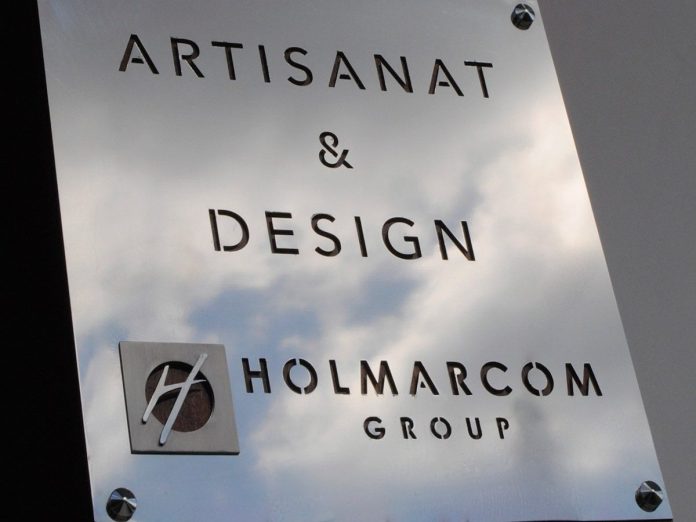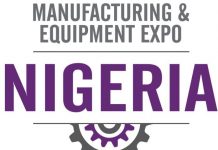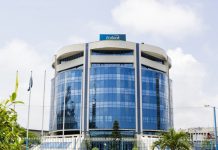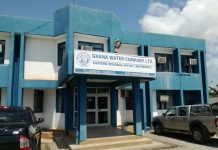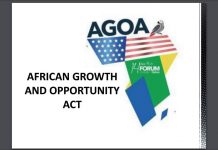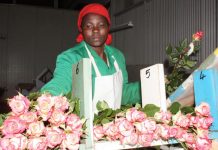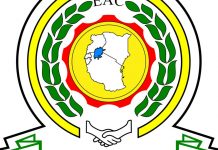Morocco-Senegal
Holmarcom Group, a leading family-run, multi-industry group in Morocco, and Peacock Investments of Senegal formed a partnership through a capital increase that gives Holmarcom 51 percent of Peacock Investment shares. The partnership speaks to the growing trend of cross-border investment in Africa by Africans. Magatte Diop will continue to chair the board of Peacock Investments, assisted by a team of high-level professionals from Senegal and Morocco. Through Peacock Investments, the partnership plans to build 7,000 affordable units with commercial facilities, parks, and schools, in line with Senegal’s priority to provide tens of thousands homes to the local population. In Morocco, Holmarcom has done many housing and real estate projects, including Cap Tingis in Tanger and Manazil Developpement in Casablanca, Rabat and Meknes. Holmarcom’s participation in Peacock Investments is in keeping with its strategy to open up to international, and especially African, markets. The Group operates in five major sectors—finance and insurance; agro-industry; distribution and logistics; air transport; and real estate—and its main subsidiaries are leaders in their respective fields.
Caribbean-West Africa
In an example of growing south-south trade and investment, GraceKennedy Group, a food, financial and money services conglomerate based in Jamaica, West Indies, is expected to send its first shipment to Nigeria by year-end. CEO Don Wehby said the company is already established in Ghana and currently is in the final stage of product registration and due-diligence processes in Nigeria. Wehby said GraceKennedy will concentrate on the English speaking West African markets, but will continue to research opportunities in Francophone countries. He said year-to-date revenue in Ghana has doubled that of the comparative period in 2012, adding that consumers in Ghana have a similar taste profile to those in Jamaica. Much of the company’s focus on West Africa is also due to the size of the countries and the fast pace of economic growth there, he said.
Ghana Investment Laws
Ghana’s Parliament passed into law the Ghana Investment Promotion Centre Bill 2013, that, among other goals, seeks to protect local entrepreneurs from unfair competition by foreign businesses, particularly in the retail and trading sectors. The bill, which awaits the signature of President John Dramani Mahama, will repeal and replace the Ghana Investment Promotion Centre Act 478 of 1994. While the new legislation encourages foreign investors to engage in large-scale value-added trading activities that would not interfere with activities of Ghanaian petty traders, it increases the minimum capital requirement of foreigners to engage in retail trade from US$300,000 to US$1 million in cash or goods in Ghana. It requires Ghanaian citizens who partner with foreign investors to have at least 30 percent equity participation in the joint enterprise, and extends this and other requirements to mining and petroleum enterprises, which were not previously covered. The legislation also prohibits the transfer of the equity participation to a non-Ghanaian, in order to prevent circumvention of the higher capital requirements for foreign investors under the legislation, set at $50,000 in the case of a joint enterprise with a Ghanaian, and $200,000 when an enterprise is fully controlled by a foreign investor.
The bill makes it mandatory for all enterprises, including Ghanaian businesses, to register with the GIPC to ensure increased efficiency in the coordination of investments, improved investment promotion strategies, and a comprehensive dissemination of information on investment in Ghana. It expands the investment activities reserved for Ghanaians and Ghanaian-owned enterprises. Foreign companies are prohibited from venturing into the production of packaging materials and the manufacture of furniture, wood products, and sanitary products; from engaging in services connected to the oil and gas, and mining industries, as well as the manufacture of generic pharmaceutical products; from operating taxi or car hire services in an enterprise that has a fleet of not more that 25 vehicles; from operating beauty salons or barber shops; and from printing mobile phone credit vouchers.
Rail Transport
The Passenger Rail Agency of South Africa (PRASA) has embarked on an ambitious program to invest in new rolling stock over the next 20 years, a move likely to change the face of rail transport in Africa’s largest economy. PRASA said the investment was motivated by aging rolling stock, with current stock at an average age of 36 years. The agency set a 65 percent local content target for the new trains. Gibela Rail Transportation, a consortium of France’s Alstom and local company Actom that won the bid to manufacture the trains, agreed to build 3,600 train carriages between 2015 and 2025 at a cost of more than 50 billon rand (US$5.6 billion), delivering test trains by the first quarter of 2015 and operational trains by the end of 2015.
Eco-Friendly Ports
Ten new eco-friendly rubber-tire gantry cranes (RTGs) will be delivered to APM Terminals Apapa in Nigeria by November as part of a US$135 million terminal upgrade to convert from the use of reach stackers to a more efficient and safer RTG system. RTGs burn 30 percent less fuel than reach stackers. They will replace 22 reach stackers currently in service at APM Terminals Apapa. The conversion of the yard to RTGs will increase the terminal’s annual container throughput capacity to 1.2 million TEU, enough to handle anticipated Nigerian container trade growth until the proposed APM Terminals facility at Badagry becomes operational. The 10 eco-RTGs are being manufactured by Konecranes in China. Equipped with a laser stacking profiling system that reduces the risk of loaded containers being knocked off of stacks, they will be among the first in the world to offer this type of technology, according to APM Terminals. The eco-RTGs will be powered by diesel engines containing an advanced system that reduces fuel consumption by 40 percent compared to conventional diesel RTGs. The resulting savings in both fuel and emissions should be considerable, creating a blueprint for a new standard in safety and sustainable terminal operations in Nigeria and the rest of Africa.
Crop Predictor
A team of Japanese, Australian, British and U.S. researchers developed a computer model to predict global crop failures several months before harvest. In a study published on July 21 in the journal Nature Climate Change, researchers analyzed 23 years of climate forecasts and satellite observations to develop a computer model for predicting crop yields. The researchers tested how well their model predicted the actual yields at the end of each season for four staple crops—wheat, rice, maize and soybean—and found that climate-induced crop failures were reliably predicted in up to a third of the global crop area. The results suggest that computer models such as this could be used to produce crop estimates up to five months before harvest and help establish a system to predict global crop failure. The challenge for many African countries lies in putting to good use the information provided by predictions, says Lindsay Stringer, director of the Sustainability Research Institute at the University of Leeds, United Kingdom. In an interview with SciDev.net, she cited issues of capacity gaps and institutional communication, which cause problems in mobilizing personnel and resources to act upon forecast information, and a lack of necessary structures and processes to facilitate urgently needed action.
U.S.-East Africa
The United States and the East African Community agreed to launch formal negotiations on a trade facilitation agreement. The EAC is a regional economic organization comprising Burundi, Kenya, Rwanda, Tanzania and Uganda. The new negotiations are part of President Obama’s Trade Africa initiative, which backs greater U.S.-Africa trade and investment, regional integration and trade competitiveness. They aim to build on the work of the existing U.S.-EAC Trade and Investment Partnership (TIP), adding new elements to focus on sanitary and phytosanitary measures and technical barriers to trade. The U.S. Agency for International Development will transform the East Africa trade hub into a U.S.-East Africa trade and investment center to expand U.S. regional trade programs, spur private investment and scale up business-to-business and association-to-association partnerships. The United States is also forming a new partnership with TradeMark East Africa, a multi-donor funded organization dedicated to supporting greater EAC regional integration by breaking down barriers at the border and facilitating trade. The U.S. and the EAC have agreed to continue to work toward an investment treaty, and to build on notable progress in fostering greater private sector linkages and public-private sector engagement under the U.S.-EAC commercial dialogue.


